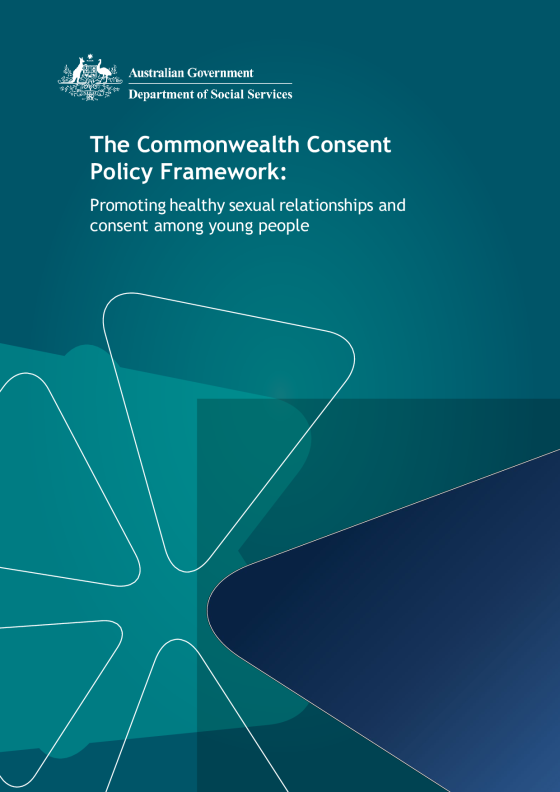Understanding sexual consent
Sexual consent is a free, voluntary and informed agreement between people to participate in a sexual act. This agreement is only present when these people mutually and genuinely feel they want to engage in that sexual act and actively make sure their partner does too.
This means there is only consent to a sexual activity if everyone involved:
- agrees with each other to take part
- really wants to take part – they don’t feel they have to
- checks in with each other to make sure everyone wants to take part
- shows or says they want to take part in a clear and open way.
Sexual consent relates to sexual activities, such as:
- sexual intercourse
- touching someone in a sexual way
- sharing sexual images
- online sexual activities.
It doesn’t matter if you’re in a relationship or not. There must be consent to engage in sexual activity that is free from violence, pressure and control.
Sexual consent is not:
- a problem to solve
- a transaction or a contract – an exchange where someone ‘gives’ or ‘receives’ consent.
The Commonwealth Consent Policy Framework
The Australian Government has developed a framework to help organisations working to prevent sexual violence, to promote healthy sexual relationships and sexual consent to young people.
The Commonwealth Consent Policy Framework: Promoting healthy sexual relationships and consent among young people is designed for:
- governments and public services
- communities and sports clubs
- workplaces and education providers
- media
- health and disability providers
- caring facilities
- religious organisations
- the justice system.
The framework proposes:
- a shared community definition of sexual consent
- 5 core concepts that underpin the definition
- 10 key principles on how to promote consent and healthy sexual relationships
- a consent and healthy sexual relationships program checklist to guide and self-assess your activity, program or product.
The framework is particularly useful for any initiative or program aimed at young people that promote healthy sexual relationships, sexual consent or aims to reduce sexual violence, including:
- respectful relationships and sexuality education
- community prevention programs
- communication and social marketing campaigns
- peer education programs
- workplace training
- parenting interventions and programs
- bystander programs
- media literacy initiatives
- social activism.
The Commonwealth Consent Policy Framework
Sexual consent and the law
It’s important to understand the laws that apply in Australia about sexual consent and sexual assault. These laws are different depending on where you are in Australia. You can look these laws up for your state or territory. For more information, visit the Youth Law Australia(Opens in a new tab/window) website.
This framework does not provide a legal definition of consent. The framework aims to bring a cultural shift in community attitudes, while promoting respectful sexual behaviour and relationships, to prevent harm.
Consent can’t wait campaign
The Australian Government has released a campaign to try and help Australians become more comfortable and confident talking about consent.
You can visit consent.gov.au(Opens in a new tab/window) to see common questions other people have about consent and find out the answers. There are conversations guides, misconceptions cards and a question generator.
There are also resources for First Nations(Opens in a new tab/window) communities, translated resources(Opens in a new tab/window) and Easy Read resources available.
Sexual violence support
If you are at risk or experiencing sexual violence or need someone to turn to, there are multiple specialist services available across Australia. These organisations offer a variety of services including emergency and crisis care, information and advocacy, and counselling and support.
Visit the National Association of Services Against Sexual Violence website to find a sexual violence support service in your state or territory(Opens in a new tab/window).
1800RESPECT
1800RESPECT is the national domestic, family and sexual violence counselling, information and support service. People experiencing or at risk of experiencing domestic, family and sexual violence can contact 1800RESPECT for free and confidential support:
- Call: 1800 737 732 – 24 hours, 7 days a week
- Text: 0458 737 732 – 24 hours, 7 days a week
- Online chat: visit the 1800RESPECT(Opens in a new tab/window) website – 24 hours, 7 days a week
- Video call: visit the 1800RESPECT(Opens in a new tab/window) website – Monday to Friday, 9 am to 5 pm AEST except national public holidays. No appointment needed.
